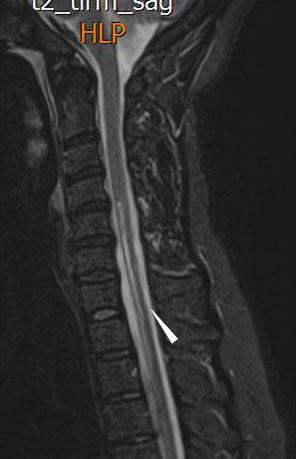 |
Case Report
MR imaging findings in children with merosin-deficient congenital muscular dystrophy
1 Resident of Radiology, Faculty of Medicine and Pharmacies of Rabat, Medical Imaging Services for Maternity and Children – University Hospital Center IBN SINA – Rabat, Morocco
2 Assistant Professor of Radiology, Faculty of Medicine and Pharmacies of Rabat, Medical Imaging Services for Maternity and Children – University Hospital Center IBN SINA – Rabat, Morocco
3 Chief of the Medical Imaging Services for Maternity and Children – University Hospital Center IBN SINA – Rabat, Morocco
4 Professor of Radiology, Faculty of Medicine and Pharmacies of Rabat, Medical Imaging Services for Maternity and Children – University Hospital Center IBN SINA – Rabat, Morocco
Address correspondence to:
Arthur Semedo Insumbo
Rabat,
Morocco
Message to Corresponding Author
Article ID: 100019R02AI2021
Access full text article on other devices

Access PDF of article on other devices

How to cite this article
Insumbo AS, El Yousfi Z, El Haddad S, Chat L, Allali N. MR imaging findings in children with merosindeficient congenital muscular dystrophy. Edorium J Radiol 2021;7:100019R02AI2021.ABSTRACT
Congenital muscular dystrophy (CMD) constitutes a set of diseases which differ, sometimes very much from each other. Congenital muscular dystrophy also known as a heterogeneous group of disorders with muscle weakness, hypotonia, and contractures present at birth. This disease is essentially characterized by a complete absence of merosin. Brain magnetic resonance imaging (MRI) in children the lesions presenting with high signal intensities are often observed throughout the centrum semi-oval, periventricular, and sub-cortical white matters on T2-weighted images in MRI brain in children with merosin-deficient congenital muscular dystrophy (MDCMD). In several studies it is noted that the apparent diffusion coefficient (ADC) map may reveal increased signal intensity and at the same times it may value in the periventricular and deep white matters. In this case report we would like to demonstrate the brain MRI characteristics of MDCMD in a young child of 15 years old.
Keywords: Congenital muscular dystrophy, MRI, White-matter abnormalities
SUPPORTING INFORMATION
Author Contributions
Arthur Semedo Insumbo - Substantial contributions to conception and design, Acquisition of data, Analysis of data, Interpretation of data, Revising it critically for important intellectual content, Final approval of the version to be published
Zakia El Yousfi - Substantial contributions to conception and design, Acquisition of data, Analysis of data, Interpretation of data, Revising it critically for important intellectual content, Final approval of the version to be published
Siham El Haddad - Substantial contributions to conception and design, Interpretation of data, Drafting the article, Revising it critically for important intellectual content, Final approval of the version to be published
Latifa Chat - Substantial contributions to conception and design, Interpretation of data, Revising it critically for important intellectual content, Final approval of the version to be published
Nazit Allali - Analysis of data, Interpretation of data, Revising it critically for important intellectual content, Final approval of the version to be published
Guaranter of SubmissionThe corresponding author is the guarantor of submission.
Source of SupportNone
Consent StatementWritten informed consent was obtained from the patient for publication of this article.
Data AvailabilityAll relevant data are within the paper and its Supporting Information files.
Conflict of InterestAuthors declare no conflict of interest.
Copyright© 2021 Arthur Semedo Insumbo et al. This article is distributed under the terms of Creative Commons Attribution License which permits unrestricted use, distribution and reproduction in any medium provided the original author(s) and original publisher are properly credited. Please see the copyright policy on the journal website for more information.





